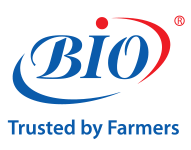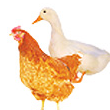ASSOCIATE PROFESSOR LÊ VĂN THỌ
Technique advisor for Joint – venture company BIOPHARMACHEMIE
Technique advisor for Joint – venture company BIOPHARMACHEMIE
Avian influenza is an acute infectious disease in Viet Nam caused by Influenza A virus subtype H5N1, which spreads rapidly through poultry flocks or even to human with high lethality. Recently, China and some provinces in southern China near the border with Vietnam are facing the outbreaks of A/H7N9 influenza with an alarm spreading speed.
According to the announcement of World Health Organization (WHO), the complex situation of A/H7N9 influenza in China is increasing with the number of infected cases has been recorded is much higher than those of 2013. By the first month of 2014, there was 151 new cases reported, in which there were 16 deaths. Since 3/2013, China has reported 298 infected cases, in which 63 people died. The mortality rate accounted for 21% of infectious people; most of the confirmed cases had contacted with poulty. Speakers of WHO also warned that influenza virus strongly develop in winter; therefore, the disease outbreaks are prone to explode around Lunar New Year to April every year. In the early of 2014, the avian influenza occurred in Vietnam following the same pattern.
In Vietnam, there has been no case of influenza A/H7N9 in human and avian reported until now. However, there was 2 people who had close contacted with infectious poultry, confirmed died of A/H5N1 influenza in southern Binh Phuoc and Dong Thap provinces in January, 2014.
What should we do to prevent the reoccurence of A/H5N1 influenza in Vietnam and the transmission of A/H7N9, H10N8 and H6N1 influenza virus from China.
BIO company hopes that poultry farmers, slaughterhouse workers, transporters, salesmen, distributors and consumers should aware and follow these below rules to promote a successful prevention for the avian influenza in human and poultry:
I. COMMON CLINICAL SIGNS OF AVIAN INFLUENZA
Incubation period lasts from a few hours to 3 days. Clinical signs of poultry: fever, inappetite, dyspnea, mouth-breathing, excessive discharge from noses, mouth and eyes. Chicken get diarrhea, yellow-green and stinky smell feces. Crests and wattles swollen, hyperemia with dark red. Typical clinical sign of influenza include congestion in legs skin, neurotics’ symptoms, inclined step, whirl and dead. High mortality rate. Nowadays, there hasn’t been any specific treatment for avian influenza, therefore prevention is the primary choice.
 |  |
II. PREVENTION PRIOR TO OUTBREAK:
1. Poultry must be vaccinated against all infectious diseases, including avian influenza A/H5N1. Recommended to oral supply BIO-VITAMIN C 10% and BIO-ELECTROLYTES a few days before vaccination to reduce stress, enhance body resistance and immune system.
2. Provide sufficient nutrition in diet, keep warm in cold weather. Chickens and ducks are prone to infecte by parasites that cause reduced growth and immune system depression. Therefore, deworming should be done with BIO-LEVAXANTEL 1ml/5kg BW. After deworming a few days, add BIO-VITASOL, BIO-AMINOSOL ® and BIO-VITA FORT to poultry drinking water to enhance resistance.
3. Thoroughly clean feces, bedding materials, feeders and drinkers, then disinfect the entire farm and equipment after each batch of chicken. The farm must be left empty for 10-15 days before next batches.
Ducks, muscovy ducks, or wild birds can carry avian influenza virus without showing any clinical signs. Virus is also present in saliva, nasal discharge and feces that can transmit the disease from one place to another when animal stay on fields or enter farms. Therefore, stockpeople should restrict movement of poultry to those areas where wild birds can get access to. Stop leaving free-range ducks during outbreak to prevent infection and transmission. Do not let chicken, ducks and muscovy ducks share mutual pens to prevent transmission from ducks to chicken.
III. PREVENTION DURING OUTBREAK
Influenza virus can invade a host via 2 main routes: respiratory and digestive tracts. The pathogen is present in the air or in food and water. Incubation period is from 2 weeks to longer than 1 months, but virus is vulnerable to destroy by disinfectants such as BIO-GUARD, BIOXIDE, BIODINE ®, BIOSEPT ®…
BIO-GUARD is an effective product with rapid onset of action and last for a long time based on the combination of 3 ingredients: Formaldehyde, Glutaraldehyde anh Benzalkonium chloride. This medicine has an effect against to all pathogens in cattle and poultry, even influenza virus and PRRS virus in swine.
1. During outbreak, spray one of these mentioned above disinfectants in every 2 days to prevent viral attack and transmission.
2. Use BIODINE ® 5ml/4litter to sterilize drinking water to prevent water-borne transmission.
3. Add BIO-VITAMIN C 10% to drinking water to enhance poultry resistance.
4. Restrict outsider movement into the farm
5. Trade and import of poultry or poultry products must be strictly control under the permission of authorized veterinary offices, especially in the area near border lands. Vietnamese people are not permitted to purchase or sell any of poultry product without Animal Quarantine Certification for Export or Import from the competent authority.
6. When found dead poultry in farms, never move them out of farms regardless of death causes, but must to report to authorized veterinary offices. Do not slaughter them for consumption or sale; do not discard into fields or rivers. Dead poultry must be placed in sealed plastic bags, buried in deep holes with lime powder (calcium hydroxide).
IV. PREVENT ZOONOTIC TRANSMISSION:
1. Wear safety-working clothes, boots and gloves when capture or kill infected poultry, then carefully wash hand with antiseptic agent.
2. Do not eat rare meat or blood soup of poultry.
3. Although there are slaughterhouses assigned by the the competent authority of government, it is a fact that there are non-authorized slaughter activities, bussiness of poultry products such as meat or eggs in local markets. This situation exposes the high risk of disease outbreaks.
We hope that consumers make a habit of only consuming quarantined animal-products to be part of the outbreak prevention.
ASSOCIATE PROFESSOR LÊ VĂN THỌ

 Hotline:
Hotline:

.jpg?width=120&height=90&mode=pad&anchor=auto&scale=both)









Comments